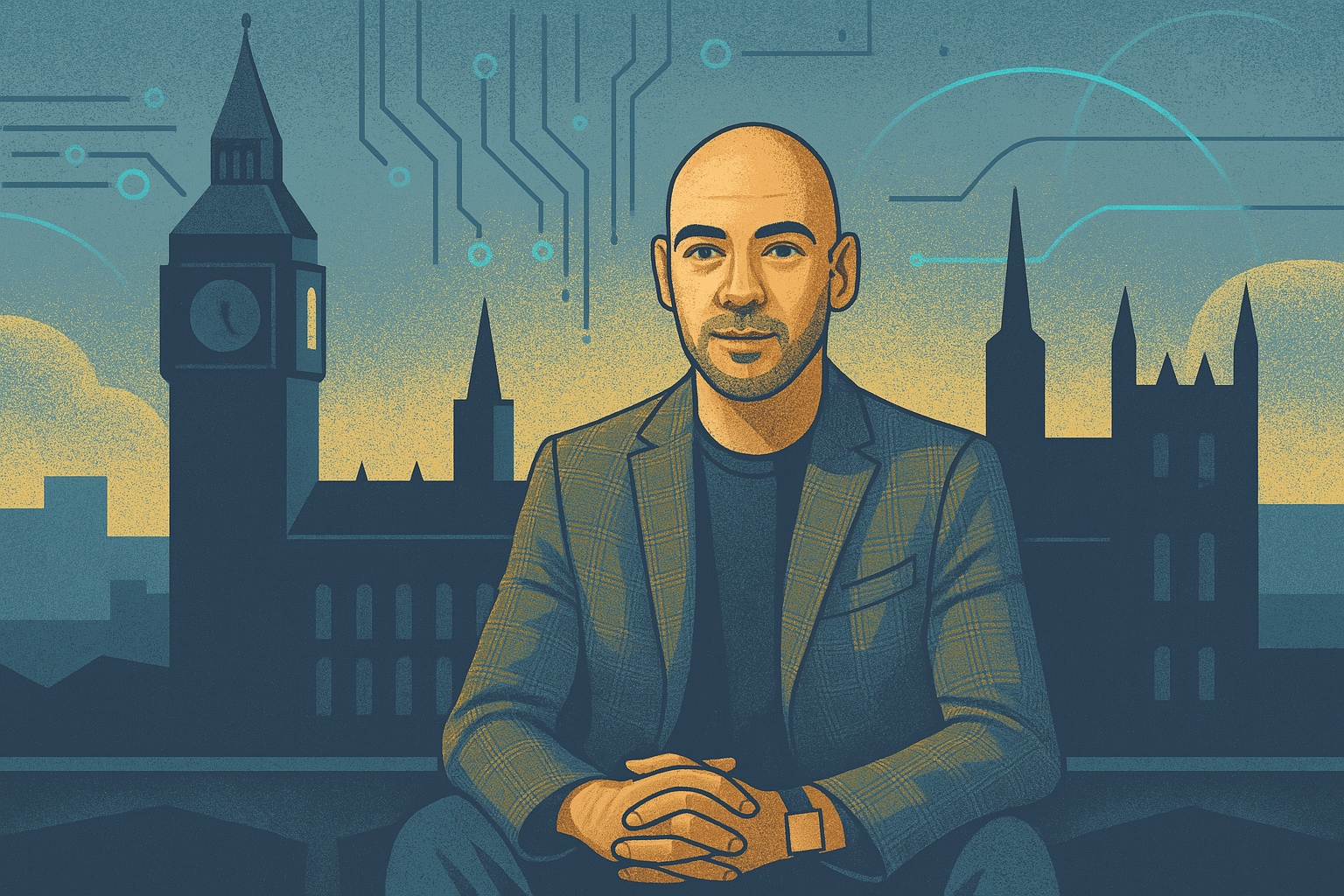When Leon Emirali stepped away from the corridors of Westminster in July 2020, he carried with him more than a stack of ministerial briefings and political memories. “During my spell in Westminster I spent as much time troubleshooting office printers as drafting ministerial briefings,” he recalls. “Across Westminster, the core workflow still hinges on unbelievably outdated tech. I found myself asking why the same leaders who advocate for autonomous vehicles and artificial intelligence accept technology that would shame a rural post office.”
That frustration, and a talent for seeing around the next corner, became the driving force behind Emirali’s next act. In mid-2024, after an extended period consulting and building other ventures, he founded Nostrada.ai — a company developing digital “twins” of MPs and policymakers, using generative AI to predict political moves and scenario outcomes in real time. “When I left Westminster I took that frustration with me, paired it with the surge in large language model capability and built Nostrada.ai to show that policy and politicians can be made more accessible and understandable by intelligent systems like the one we’ve built.”
The seeds of this ambition were sown much earlier. Back in 2017, during the Brexit negotiations, Emirali pitched the idea of a chatbot that would mimic then-Prime Minister Theresa May, offering conversational briefings via smart speaker. The concept, he says, “gathered dust, yet the technical thought lingered for a while.” When the latest wave of AI models hit, he returned to the idea — this time with sharper tools, greater urgency, and the experience of political life in hand.
Born in Bedfordshire in 1991, Emirali studied at Coventry University and was recognised early as an entrepreneurial talent. While still a student, he launched one of the UK’s first social-media agencies, then co-founded Crest Communications in 2016, earning a place on PR Week’s “30 Under 30” list. By 2019, he was Chief of Staff at HM Treasury, serving under Steve Barclay through Brexit, the 2019 general election, and the first shockwaves of the Covid-19 pandemic.
The transition out of Westminster proved defining. “Inside Westminster, a House of Commons business card gives you instant licence. In the private sector, trust resets to zero the moment you walk out of the Parliamentary estate,” he says. Building authority in tech, rather than politics, meant adapting fast. “We locked a ten-week window to ship our product, no excuses. That aggressive deadline aligned every discipline and showed the development team that even though I came from a very different world to them, I was still committed to building a transformational product.”

Nostrada.ai’s technology is already making waves across lobbying, diplomacy, and the media. Its platform models the behaviour and policy instincts of all 650 MPs, enabling clients to run simulated scenarios and predict responses to proposed amendments or unfolding events.
“We operate with real-time updates — we have no other choice because of the way politics operates,” says Emirali. The digital twins ingest everything from parliamentary speeches to local press cuttings, allowing users to pose natural-language questions and receive answers with provenance links and scenario breakdowns. The tool has attracted diplomatic users, public affairs agencies, and, increasingly, defence and corporate risk analysts.
Media attention has followed. Since its public launch in January 2025, Nostrada.ai has been profiled in The Guardian and The Times, cited in parliamentary debates, and even featured on ITV’s Peston, where MP Dawn Butler tested her own AI simulation live on air. Emirali’s product is often described as sitting at the intersection of AI, democracy, and lobbying — a space that brings both opportunity and scrutiny. “Because we sit at the intersection of AI, democracy and lobbying, opinions have arrived before invoices,” Emirali says. “We’ve been mentioned in Parliament, used by diplomats from NATO states and featured regularly on prime time TV. Keeping the developers insulated from that noise while staying transparent with regulators demands constant filtering.”
For Emirali, the hardest leadership lesson has come from learning the limits of AI. “Probabilistic output breeds overconfidence if left unchecked,” he reflects. A reshuffle during early pilot testing saw the model’s impressive predictive streak upended overnight. The solution? Pairing every AI-generated output with a human-written risk memo, and keeping “a human in the loop” at every stage.
Despite the intensity and unpredictability of his sector, Emirali’s focus is firmly forward. “General elections and spending reviews inevitably set the cadence for core product updates. But the good thing about having worked in Westminster at a senior level is I have a good sense of when these things might happen so we can prepare accordingly.”
If there is a central lesson from Emirali’s journey, it is the value of acting decisively — even in high-stakes, high-uncertainty settings. “Launch before you feel comfortable. In both Westminster and startups, opportunities appear as slivers. Waiting for the perfect output wastes so much time and in technology and politics, there is no time to waste.”
As the lines between politics and technology continue to blur, Leon Emirali’s career is proof that innovation often begins with the frustrations and blind spots of the status quo. For the next generation of leaders, his story offers a case study in resilience, adaptation, and the power of data-driven ambition.



